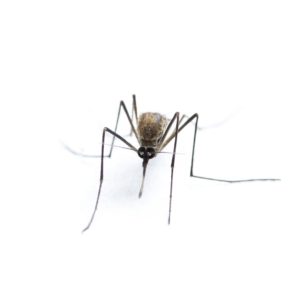Here in Maine, when someone thinks of the official state bird, they might think mosquito before they think chickadee. This time-honored joke isn’t lost on anyone who has spent time in Maine between January and September.
Mosquitoes are more than just annoying, itch-inducing blood suckers, they can also cause serious illness. Mosquito-borne diseases do not only affect humans – they also kill countless birds, reptiles, dogs, horses and endangered species each year.
We all play an important role in protecting the public health of our community and should take simple steps to reduce the risk of mosquito-transmitted diseases in our own backyards.
In honor of National Mosquito Control Awareness Week (June 21—June 27, 2020), we turned to the American Mosquito Control Association (AMCA) for tips to help you keep your yard mosquito safe.
AMCA recommends people follow the three D’s to keep mosquitoes away:
Drain
Many mosquito problems in your neighborhood are likely to come from water-filled containers that you can help to eliminate. Mosquitoes require water to breed. Be sure to drain any standing water around your house.
- Dispose of any tires. Tires can breed thousands of mosquitoes.
- Drill holes in the bottom of recycling containers.
- Clear roof gutters of debris.
- Clean pet water dishes regularly.

- Check and empty children’s toys.
- Repair leaky outdoor faucets.
- Change the water in bird baths at least once a week.
- Canoes and other boats should be turned over.
- Avoid water collecting on pool covers.
- Empty water collected in tarps around the yard or on woodpiles.
- Plug tree holes.
- Even the smallest of containers that can collect water can breed hundreds to thousands of mosquitoes. They don’t need much water to lay their eggs. (bottles, barrels, buckets, overturned garbage can lids, etc.)
Dress
Wear light colored, loose fitting clothing. Studies have shown that some of the 174 mosquito species in the United States are more attracted to dark clothing and most can readily bite through tight-fitting clothing of loose weave. When practical, wear long sleeves and pants.
Defend
Choose a mosquito repellent that has been registered by the Environmental Protection Agency. Registered products have been reviewed, approved, and pose minimal risk for human safety when used according to label directions. Four repellents that are approved and recommended are:
- DEET
- Picaridin
- Oil of lemon eucalyptus
Here are some rules to follow when using repellents:
- Read label thoroughly before applying.
- Apply repellent sparingly, only to exposed skin (not on clothing).
- Keep repellents away from eyes, nostrils and lips: do not inhale or ingest repellents or get them into the eyes.
- The American Academy of Pediatrics (AAP) suggests that DEET-based repellents can be used on children as young as two months of age. Generally, the AAP recommends concentrations of 10% or less, unless disease risk is imminent, then concentration can be increased to 30% or less.
- Avoid applying repellents to portions of children’s hands that are likely to have contact with eyes or mouth.
- Repellents can be used by pregnant or nursing women. The EPA does not recommend any additional precautions for repellent use by pregnant or nursing women.
- Never use repellents on wounds or irritated skin.
- Use repellent sparingly and reapply as needed. Saturation does not increase efficacy.
- Wash repellent-treated skin after coming indoors.
- If a reaction to insect repellents occurs, wash treated skin, and call a physician. Take the repellent container to the physician.
These tips aren’t likely to make your yard mosquito-free, but you should be able to avoid being overrun by the little buggers at your next BBQ.
